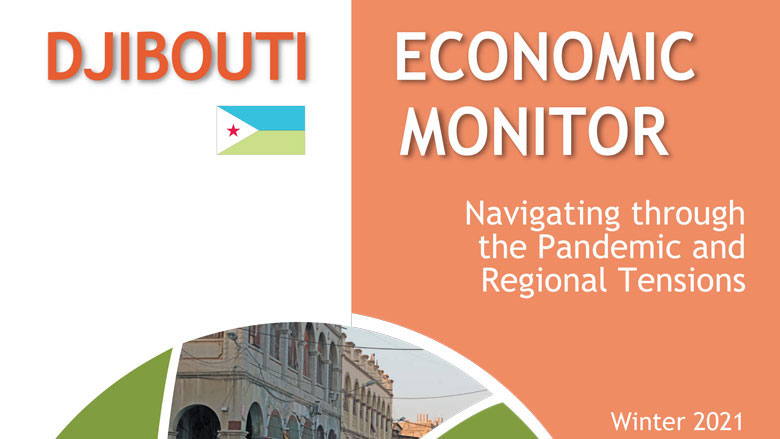Titled “Navigating through the Pandemic and Regional Tensions”, the Winter 2021 edition of the World Bank’s Djibouti Economic Monitor is the first in a series of semi-annual reports aimed at analyzing development trends and constraints in Djibouti.
Severely impacted by the pandemic in 2020, Djibouti’s economic activity has shown signs of recovery in 2021. GDP growth rate in 2020 dropped to a decade low of about 0.5% but rebounded in 2021 to a projected 5.1%. The recovery is mostly driven by a withdrawal of COVID-19 related lockdown measures in late 2020, which has facilitated a rebound in investment and construction. Broad containment of the virus and continued government support has also bolstered household consumption. However, the economic rebound was dampened by a fall in the Ethiopian demand for logistics services during the second half of 2021.
Amid the covid-related recovery, the prolonged conflict in Ethiopia has increased downside risks for Djibouti’s economic outlook. In light of the severe uncertainty regarding the neighboring conflict, this first edition of the Djibouti Economic Monitor considers two scenarios for the medium-term outlook: a baseline scenario, whereby the conflict in Ethiopia is expected to find a peaceful solution within six months; and a downside scenario, that assumes the conflict intensifies and lasts through December 2022. Based on this, real GDP growth in Djibouti could hover between 4.3% and 2.7% in 2022 (baseline and downside scenarios, respectively).
The report is divided into three chapters. Chapter 1 provides an update on Djibouti’s recent economic developments. Chapter 2 present the country’s macroeconomic outlook and risks. The Special Focus (Chapter 3) discusses the impact of the COVID-19 on the labor market and household welfare.
- Djibouti Economic Monitor, Winter 2021: Navigating through the Pandemic and Regional Tensions ( Full Report in a PDF Format)
